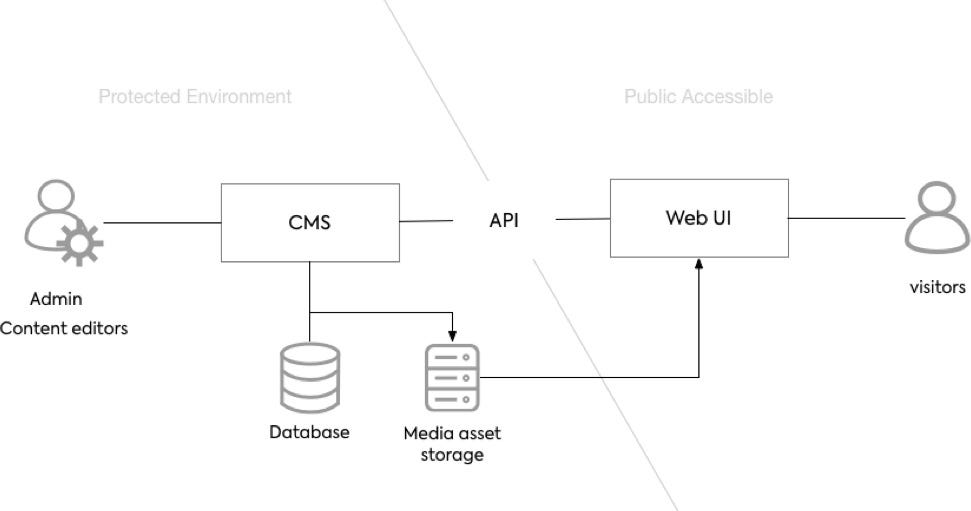
When we choose a platform and technology to use for our client there are multiple fronts we usually would consider:
- Security
- Stability
- Flexibility (how much time does it take to customize / override certain default behavior)
- Community support
- Budget
Wordpress is a great platform, however its extension (plugins and themes) ecosystem actually put quite a toll on the platform and site owners. On one hand it increases the complexity to use as each theme and plugin injects tons of unnecessary features and additional UI to configure them, and at the same time degrades the performance and security thanks to the unnecessary features and unstable code as well. So even when we are building sites for our client Wordpress, we take a very lean approach making sure only the a very limited number of necessary plugins will be used.
But of course, if you are building a quick website project with only limited tech resources, Wordpress is still a pretty good platform to start with.
Decoupled CMS Approach

For most of our Wordpress projects, we usually recommend a decoupled CMS approach — where frontend and CMS only communicate through API. Frontend will be built on better framework such as Laravel, while Wordpress mainly just to manage content and thus separating the presentation layer from the CMS.
The Decoupled CMS structure can provide a much faster, more stable and secure infrastructure for our clients.
While the public facing front-end code will no longer gain direct access to the data store, yet it still offers the flexibility Wordpress provides on managing the increasingly complex format of content, with a familiar interface. It may come with a downside certain features will no longer be controlled by Wordpress (i.e. widgets, and other front-end manipulating plugins like Contact Form 7), but it’s definitely a trade off worth considering particularly for popular high traffic websites.
Which CMS do we recommend then?
Besides Wordpress, we usually recommend our client to use another popular CMS called OctoberCMS. Unlike Wordpress while IT IS the Framework, OctoberCMS is built on top of Laravel — a Rails inspired, popular PHP framework that lets you develop high performance applications in a fraction of the time. It provides additional flexibility for customization than having to fight to override the built-in behavior of the CMS in the way Wordpress developers can only dream of.





